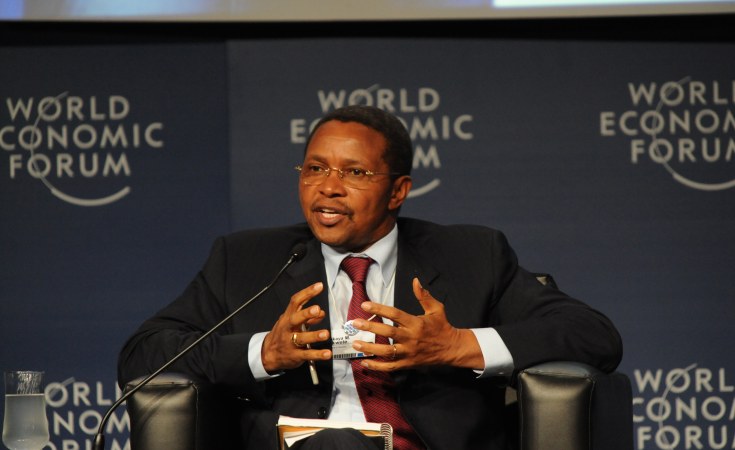The recent Fourth Annual Corporate Council on Africa (CCA) U.S.-Africa Infrastructure Conference brought together industry leaders from all sectors and policymakers from the United States and Africa to shape the continent's economic future through foreign investment and enterprise.
U.S. Assistant Secretary of State Johnnie Carson spoke to the April 28 conference about Africa's challenges.
"Africa cannot hope to close its development gap or to achieve middle-income status without addressing infrastructure as a fundamental impediment to trade, investment and growth," he said. "Poor road, rail and harbor infrastructure adds 30 to 40 percent to the cost of goods traded among African countries."
Katherine Sierra, the World Bank's vice president for sustainable development, talked about the bank’s efforts and pointed to the Africa Infrastructure Diagnostic - a set of data to determine the status of infrastructure in African countries and to help diagnose where development is most needed.
She said the lack of large-scale economies, the high costs of electric power and a lack of competition contribute to the high cost of infrastructure in Africa. "Thin markets in Africa are often characterized by monopolies or cartels leading to high profit margins for a limited number of service providers, inefficiencies and therefore high prices,” she said.
A luncheon on day two of the conference, titled “Africa's Got Talent: Entrepreneurs in Action,” focused on getting investment capital to African businesses and on new ways to boost the continent’s economic growth.
Dr. Mohammed Ibrahim, founder of a major mobile network, Celtel International, which he sold in 2005, talked about the high cost of moving goods across borders and the lack of infrastructure. Ibrahim, who now heads a foundation that bears his name, appealed for investors to get involved in Africa.
Many African countries have markets that are sub-scale, he said, making market integration a necessity for success. “We have 53 African countries,” he said. “It's too many.”
He decried the flow of capital out of Africa, particularly, most recently into Asian markets. “We go out of our way not to trade with each other,” he said. Only eight percent of Africa's trading occurs within its borders, Ibrahim said.
“We have to go out and compete,” he urged. “Nobody owes us a free lunch.”
Another panel at the luncheon focused on several Africans who took part in the Presidential Summit on Entrepreneurship hosted by President Barack Obama last week. Kojo Benjamin Taylor, who heads a health care innovation company, MicroClinic, argued that investment can be a boon to the health care sector. He said Africa needs public and private sector collaboration as well as U.S.$35-40 billion to plug all the holes in service delivery in the health sector.
"We have started to adopt some of the Western lifestyle in our eating habits. We are driving more instead of walking, we are beginning to eat more canned food, so diseases are moving from contagious [illnesses] to diseases that require more medical technology for us to do more testing,” he said.
Julian Rotich, a founder of the web-based mapping site Ushahidi, agreed with Ibrahim that regional integration is paramount. “In the interconnected world we live in, sometimes the geographical division that we have doesn’t matter as much anymore,” she said.
She challenged investors to seek out “regional integration already happening on the Internet and within Africa," which, she said, helps entrepreneurs connect to capital and ideas around the world.
Rotich called on African governments to put in place policies that are conducive to entrepreneurs within Africa. She said a mobile developer has to pay 50,000 Kenyan shillings for a license. "If you're starting out and you don't really have money, that's not money you can easily come by,” Rotich said.
Ronald Mutebi, president and CEO of Uganda-based Tek Consults Group, said American and European investors are more likely to benefit from an improved business environment than locals in most African countries. Organizations like USAID and the World Bank don't usually make funds available to African entrepreneurs, he said.
Salim Amin, chairman of Camerapix and A24 Media in Nairobi, praised the gathering, saying that it gave him the chance to meet with innovators outside his industry and said he hoped to share ideas with fellow attendees in the future.
The fourth annual CCA conference was attended by over 400 investors, government officials and stakeholders from across all business sectors.
Related: Mo Ibrahim speaks to allAfrica.com on regional integration and economic viability in Africa.


